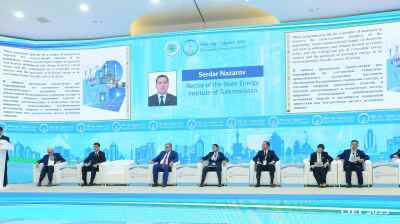Russia’s Rosneft has executed a strategic reduction of its shareholding in the Kurdistan Pipeline Co. (KPC), bringing its stake below the critical 50% threshold to insulate the subsidiary from the reach of US sanctions. A Kurdistan Regional Government (KRG) official confirmed the restructuring to Reuters last week, marking a significant adjustment in the ownership structure of northern Iraq’s primary energy export artery.
The divestment is a direct response to sanctions imposed by Washington last month on Rosneft and Lukoil, Russia’s two largest oil entities, as part of efforts to pressure the Kremlin regarding the war in Ukraine.
Crucially, these measures apply to any entity in which the sanctioned companies hold an interest of more than 50%. Rosneft’s previous position – 60% controlling stake acquired in 2017 – placed KPC squarely within the scope of these restrictions.
To align with compliance requirements and ensure operational continuity, Rosneft has sold an 11% stake to DEX Capital, a UAE-based fund manager focused on energy and infrastructure. Two sources familiar with the details of the transaction confirmed the buyer’s identity to Reuters.
“After consultations with the KRG, Rosneft sold part of its stake in the export pipeline project under pressure from recent US sanctions,” an official at the Kurdistan natural resources ministry told Reuters.
KPC operates the pivotal pipeline infrastructure transporting crude from northern Iraq to its connection point at the border, linking to the Iraq-Turkey pipeline which serves the Ceyhan export terminal. The entry of DEX Capital into the shareholder register diversifies the asset’s ownership base and underscores the UAE’s expanding strategic footprint in critical regional energy logistics.
Rosneft originally entered the project in 2017, partnering with the local KAR Group, which retained a 40% interest. As part of that agreement, the Russian firm provided the KRG with over $2.1bn in loans via prepayment deals under a long-term supply contract that ran until 2020 – a financing arrangement that proceeded despite lacking official recognition from Baghdad.
For industry executives, this restructuring illustrates the complex manoeuvres required to protect strategic midstream assets in a heightened sanctions environment. By diluting its majority control, Rosneft aims to preserve the commercial viability of the pipeline while DEX Capital’s acquisition adds a layer of regional stability to the asset’s financing and governance.
Press release

Deals signed in Syrian gas reset
Syria’s energy pivot accelerates as Chevron and Dana Gas join Gulf partners to rehabilitate war-torn infrastructure and secure urgent fuel supplies.

Aramco reportedly pauses Safaniya onshore tender
Saudi Aramco is reported to have extended the bid deadline for its Safaniya onshore oilfield development project, according to industry publications

CIET 2025 — Smart construction. Clean energy. Resilient future.
The Awaza National Tourist Zone on the shores of the Caspian Sea is set to welcome delegates and industry leaders to the International Conference & EXPO “Development of the Construction, Industrial, Chemical and Energy Sectors of Turkmenistan”.



